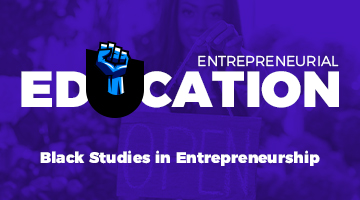The college application dance reaches its yearly crescendo every January as high school seniors anxiously await admissions decisions that will profoundly shape their futures. I mentored Jamal through this stressful process last year. He dreamed of being the first in his family to attend college. Still, he struggled to navigate the complex financial aid forms and essay requirements, questioning if higher education would be financially possible as the child of working-class immigrants. Ultimately, Jamal was accepted to his top-choice regional state college with a merit scholarship, becoming a role model for his younger sister. However, too many minority students still lack the proper guidance to maximize their potential shot at admissions and affordable access. Students, counselors and mentors all must take urgent proactive steps to change this.
Strategically Applying to Minority-Serving Schools Expands Opportunities
With early action and regular decision deadlines hitting for the class of 2024 in the coming months, anxiety continues to swell amid declining college enrollment and attendance by African American teens, according to recent National Center for Education Statistics data. However, historically Black colleges and universities (HBCUs) and Hispanic-serving institutions share a mission to educate and propel underrepresented groups. Focusing applications specifically on these institutions lifts admission chances. Counselors must do more to ensure Black students explore nearby HBCUs as well as reputable online distance learning options in order to close the information gaps that prevent applications in the first place.
Showcasing Community Leadership and Black Excellence
Additionally, Black applicants can underscore their dedication to racial progress by participating in extracurricular activities and volunteering in areas specifically focused on African American community issues, such as mentoring programs with the Boys & Girls Clubs of America or local Black churches. Listing details about the school, nonprofit, and civic organizations aided and societal causes championed highlights an applicant’s passions and context for admission reviewers beyond grades and test scores alone. I assisted Jamal in framing his 100+ hours of volunteering with his church youth program this way after initial drafts lacking cultural connections missed the mark.
Proactively Securing Targeted Financial Assistance
Far too many Black collegians still face massive affordability gaps today, a fact which almost forced Jamal to forego attending altogether. Proactively seeking out scholarships like those offered by UNCF and The Gates Fund—designed especially for high-achieving minority students—supplements more traditional FAFSA and existing university aid options. Compiling a targeted strategy list of applicable scholarships by academic major and community service backgrounds can lessen the financial hurdles plaguing access. Even smaller local awards help defray expenses—like buying textbooks, commuting, and housing costs—which can create unexpected shortfalls each semester.
Take Control Over This Defining Application Season
The road to college may seem overwhelmingly complex financially and administratively. Still, Black students can maximize higher education opportunities in the 2024 application cycle through smart positioning which showcases their community service and passion for racial progress. Let Jamal’s against-the-odds story inspire you to more consistent action by turning mentoring and admissions guidance from an exception into a norm. This defining season awaits the Class of 2024.






